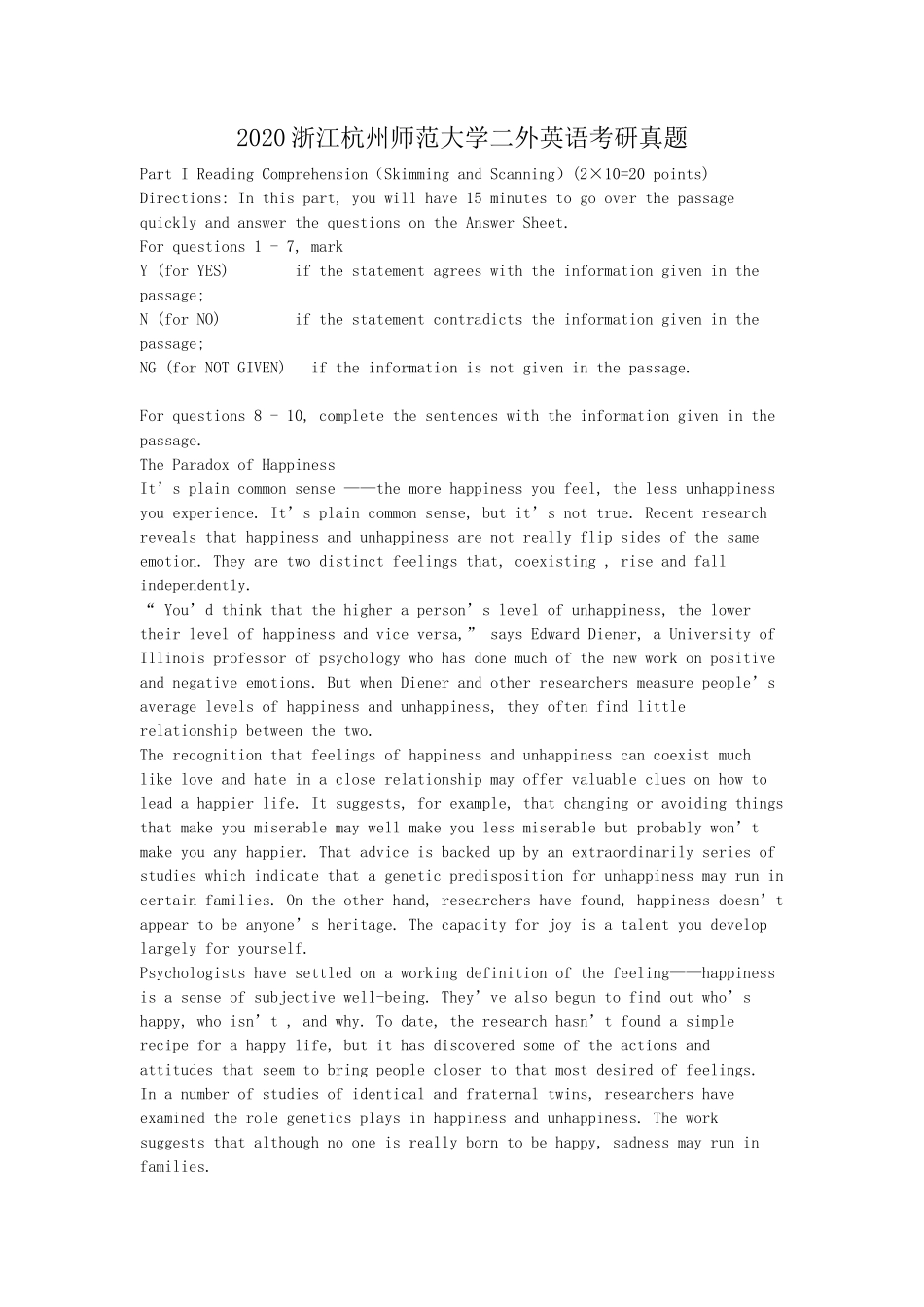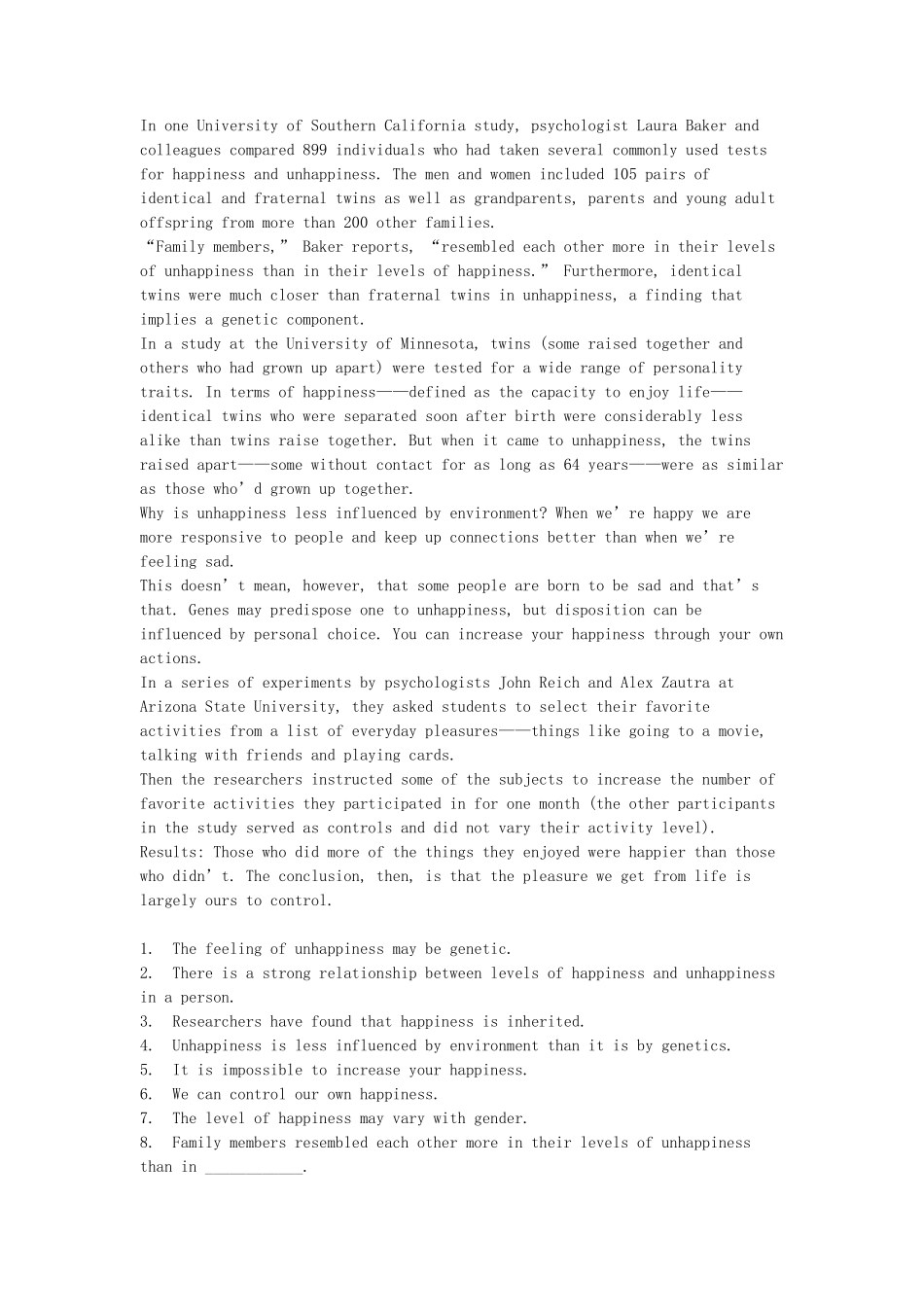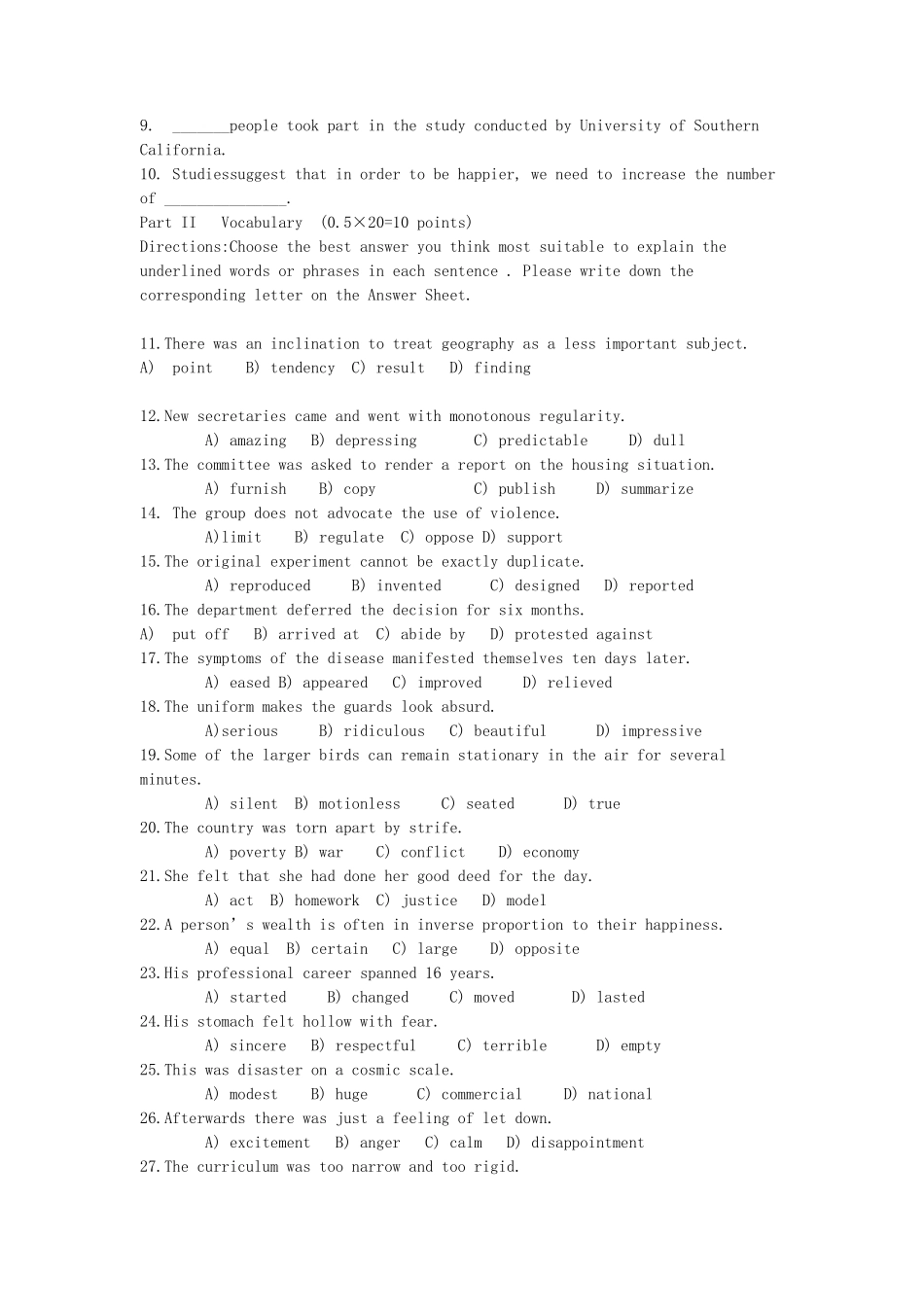2020 浙江杭州师范大学二外英语考研真题Part I Reading Comprehension(Skimming and Scanning)(2×10=20 points)Directions: In this part, you will have 15 minutes to go over the passage quickly and answer the questions on the Answer Sheet.For questions 1 - 7, mark Y (for YES) if the statement agrees with the information given in the passage;N (for NO) if the statement contradicts the information given in the passage;NG (for NOT GIVEN) if the information is not given in the passage.For questions 8 - 10, complete the sentences with the information given in the passage.The Paradox of HappinessIt’s plain common sense ——the more happiness you feel, the less unhappiness you experience. It’s plain common sense, but it’s not true. Recent research reveals that happiness and unhappiness are not really flip sides of the same emotion. They are two distinct feelings that, coexisting , rise and fall independently.“ You’d think that the higher a person’s level of unhappiness, the lower their level of happiness and vice versa,” says Edward Diener, a University of Illinois professor of psychology who has done much of the new work on positive and negative emotions. But when Diener and other researchers measure people’s average levels of happiness and unhappiness, they often find little relationship between the two.The recognition that feelings of happiness and unhappiness can coexist much like love and hate in a close relationship may offer valuable clues on how to lead a happier life. It suggests, for example, that changing or avoiding things that make you miserable may well make you less miserable but probably won’t make you any happier. That advice is backed up by an extraordinarily series of studies which indicate that a genetic predisposition for unhappiness may run in certain families. On the other hand, researchers have found, happiness doesn’t appear to be anyone’s heritage. The capacity for joy is a talent you develop largely for yourself.Psychologists have settled on a working definition of the feeling——happiness is a sense of subjective well-being. They’ve also begun to find out who’s happy, who isn’t , and why. To date, the research hasn’t found a simple recipe for a happy life, but it has discovered some of the actions and attitudes that seem to bring people closer to that most desired of feelings.In a number of studies of identical and fraternal twins, researchers have examined the role genetics plays in happiness and unhappiness. The work suggests that although no one is really born to be happy, sadness may run in families.In one University of Southern California study, psychologist Laura Baker and colleagues compared 899 individuals who had taken several commonly used tests for happiness and unhappiness. The men and women included 105 pairs of identical and fraternal twins as well as grandparents, parents and young...


